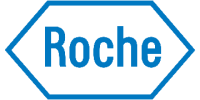
Roche
NEWS
Pfizer announces the first data from its Metsera-acquired pipeline just ahead of its earnings call, where analysts pressed execs for more details; Merck and Roche also released Q4 and full year earnings, with Eli Lilly, Novo Nordisk and others reporting Wednesday; REGENXBIO hits a regulatory snag ahead of its upcoming PDUFA; more.
The alliance will add to Roche’s RNAi efforts, which include the hypertension candidate zilbesiran, partnered with Alnylam under a July 2023 agreement.
Roche aims to become a “top three player” in obesity, Teresa Graham, CEO of the group’s Pharma unit, said Thursday during a presentation of the company’s full-year 2025 earnings.
Roche’s obesity candidate achieves 22.5% weight loss in Phase II; Moderna pulls the plug on late-stage vaccine trials as Health Secretary Robert F. Kennedy’s anti-vaccine policies and rhetoric continues; and embattled gene therapy maker Sarepta announces new data in Duchenne muscular dystrophy.
Roche said the Phase II results help build the case for advancing CT-388 into late-stage testing, which is set to get underway this quarter.
Genentech, a member of the Roche Group, plans to open the facility in 2029 to ramp up capacity to make obesity candidates, including the dual GLP-1/GIP receptor agonist CT-388.
Roche first partnered with MediLink in January 2024, likewise for an antibody-drug conjugate for solid tumors.
Recent breakthroughs and three decades of progress in treating Huntington’s disease
The agreement, which BMO Capital Markets called a “mild positive” for Structure, appears to address Roche’s concerns about the composition of investigational weight loss drug CT-996.
JOBS
IN THE PRESS








